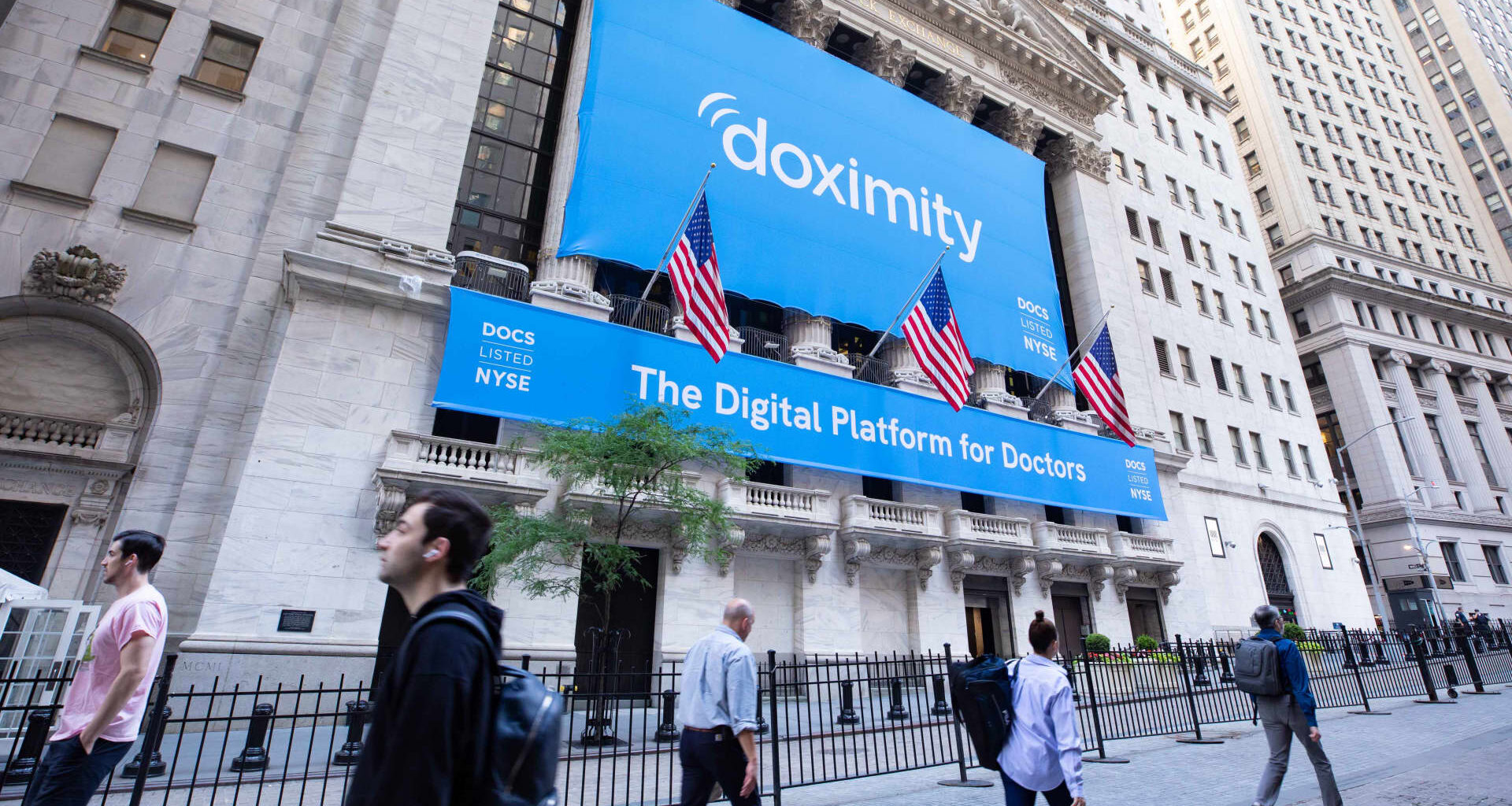Doximity at the New York Stock Exchange for its initial public offering on June 24, 2021.
Source: NYSE
Doximity is diving deeper into artificial intelligence, announcing on Thursday the acquisition of startup Pathway Medical for $63 million.
Pathway has built an AI-powered clinical reference tool that doctors can use to ask questions about guidelines, drugs and trials. Pathway’s answers are synthesized from medical literature, and Doximity said the Montreal-based startup has one of the largest structured datasets in medicine.
Doximity’s platform, which for years was described as LinkedIn for doctors, helps clinicians stay current on medical news, manage paperwork, find referrals and carry out telehealth appointments with patients. Through its acquisition of Pathway, Doximity hopes doctors will also turn to the platform to answer their clinical questions.
“We hunted high and low, and I think we found the best company in the space at answering physicians’ questions using AI, and it wasn’t in Silicon Valley,” Jeff Tangney, Doximity’s co-founder and CEO, told CNBC in an interview.
The deal closed in late July for a cash consideration of $26 million and up to $37 million in additional equity grants, Doximity said.
Doximity’s integration with Pathway is well underway, Tangney said, and the companies are testing a combined product with thousands of doctors.
Meanwhile, patients are turning with more regularity to AI tools and chatbots for answers to health-related questions, a trend that has potentially troublesome consequences due to the likelihood of inaccurate recommendations.
During a livestream on Thursday where OpenAI announced its new model GPT-5, CEO Sam Altman said health queries are one of the biggest categories of ChatGPT usage, according to a post on X, adding that the new model is “much better” in that area.
Doximity already has a free AI product, Doximity GPT, that doctors can use to generate insurance letters and summarize patient charts and reports. Pathway will bring additional “robustness” to the data that Doximity has on the back end, said Dr. Amit Phull, Doximity’s chief clinical experience officer.
“What Pathway brings to this party or this marriage is that they have a very, very robust back-end data set that ties dosages to guidelines to literature to citations,” Phull told CNBC in an interview.
Pathway’s model scored 96% on the U.S. Medical Licensing Examination benchmark, Doximity said, which doctors have to take to prove that they understand and can apply medical knowledge.
Doximity, which went public in 2021, has seen its stock climb 10% this year after soaring 90% in 2024. The company has a market cap of about $11 billion.
Shares of Doximity rose about 6% in extended trading on Thursday after the company reported fiscal first-quarter results that topped estimates. Revenue jumped 15% from a year earlier to $145.9 million, while analysts expected sales of $139.5 million, according to LSEG. Earnings per share of 36 cents topped the 30-cent average estimate.

